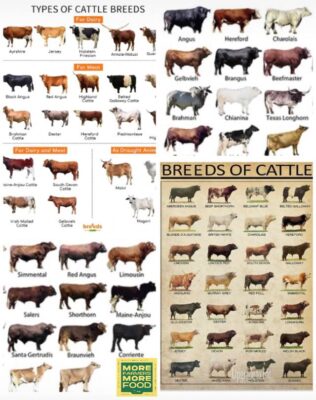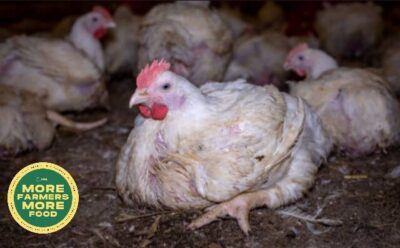Raising Chickens
In this Article...
A comprehensive guide for beginners interested in raising their own chickens.
Keeping chickens has become a popular trend among people who want to have a sustainable source of fresh eggs, as well as a friendly and low-maintenance pet. However, raising chickens is more than just having a coop and a few birds in your garden. To ensure the health and well-being of your chickens, you need to provide them with proper housing, feed, and care. In this comprehensive guide, we will cover everything you need to know about raising chickens, including housing, different breeds, food options, health problems, budget tips, why you should keep chickens, and raising chicks.
Why Keep Chickens?
There are many reasons why people choose to keep chickens. Here are some of the benefits of raising chickens:
- Fresh eggs: One of the most popular reasons to raise chickens is to have a constant supply of fresh eggs. Home-raised eggs are often more nutritious and flavorful than store-bought eggs, and you can ensure that your chickens are well-cared for and fed a healthy diet.
- Sustainable living: You can use chicken manure as a natural fertiliser for your garden, and the chickens themselves can help control pests and weeds.
- Low maintenance: Chickens are relatively low-maintenance pets, especially compared to dogs and cats. They require a clean coop, fresh water, and a balanced diet, but they don’t need to be walked or groomed. Plus, they can be very entertaining to watch!
- Educational experience: Raising chickens can be a fun and educational experience for children. You can learn about animal care, agriculture, and the food system. Plus, you can teach children about the responsibility of caring for animals and where their food comes from.
- Pets with personality: Chickens are often overlooked as pets, but they can be surprisingly friendly and entertaining. Many chicken breeds have distinct personalities and are known for their curious and social behaviour.
Different Breeds
There are many different breeds of chickens, each with its own unique characteristics. Some breeds are better for egg production, while others are better for meat production. Some breeds are more docile and friendly, while others are more active and independent. It is also worth considering your available space, for example if you have a small garden then a trio of bantam hens might be more appropriate. Here are some of the most popular chicken breeds:
- Rhode Island Red: A popular breed for egg production, Rhode Island Reds are hardy and adaptable, making them a good choice for beginners.
- Leghorn: Another popular breed for egg production, Leghorns are known for their white eggs and independent personalities.
- Plymouth Rock: A dual-purpose breed, Plymouth Rocks are good for both egg and meat production. They are also known for their calm and friendly personalities.
- Sussex: A friendly and docile breed, Sussex chickens are good for both egg and meat production, as they lay lots of tinted brown eggs for at least 5 years. They are easy to hatch from chicks and rarely go broody, so if you are hoping to raise some chicks under a broody hen then this breed may not be best.
- Orpington: A popular breed for meat production, Orpingtons are also known for their calm and friendly personalities.
Housing
The first thing you need to consider when raising chickens is their housing. Chickens require a safe and comfortable space to live in, with enough room to move around freely. The type of coop you choose will depend on the size of your flock, your budget, and the amount of space you have available. Here are some important factors to consider when building or choosing a coop:
- Size: The size of your coop will depend on the number of birds you have. As a general rule, you should have at least four square feet of space per bird in the coop, and at least ten square feet of space per bird in the run. However, if you have larger breeds, such as Orpingtons, you may need more space.
- Ventilation: Your coop should be well-ventilated, with windows or vents to allow fresh air in. Good ventilation helps prevent respiratory problems, especially during the winter months.
- Lighting: Chickens need natural light to regulate their internal clocks and lay eggs. Make sure your coop has windows or a skylight to let in natural light. In the winter, you may want to consider installing artificial lighting to encourage egg production.
- Nesting boxes: Chickens need a comfortable and private space to lay their eggs. Nesting boxes should be placed in a quiet and dark area of the coop, away from the roosting area. You should have one nesting box per three or four birds.
- Roosting area: Chickens need a roosting area to sleep at night. Roosts should be placed higher than the nesting boxes, and they should be wide enough for the birds to perch comfortably.
- Predator protection: Your coop should be sturdy enough to protect your chickens from predators, such as foxes, badgers, and rats. The coop should have a secure door that can be locked at night to keep your chickens safe. You should also consider burying mesh fencing around the perimeter of the coop to prevent predators from digging underneath.
Food Options
Chickens require a balanced diet to stay healthy and productive. Their diet should consist of a variety of grains, proteins, and minerals. The more free range your hens are, the less food range you will have to supply. They also need grit which they will pick up from the soil, to enable them to digest their food, if your birds are confined this will need to be supplied. Here are some food options to consider when feeding your chickens:
- Commercial feed: You can buy commercial feed from a local farm store or online. These feeds are formulated to provide chickens with all the necessary nutrients they need. They come in different forms, such as pellets, crumbles, and mash. Some companies produce antibiotic, additive and GM-free feed which is worth considering.
- Scratch grains: Scratch grains are a mixture of different grains, such as corn, wheat, and barley. They are a good source of energy for chickens, but they should not be the main part of their diet.
- Vegetables and fruits: Chickens love vegetables and fruits, such as carrots, peas, and apples. These can be given as treats in addition to their regular feed, and can be kept back from the food waste bin.
- Protein: Chickens need protein to lay eggs and grow healthy feathers. They can get protein from insects, such as mealworms and crickets. You can also grind up baked egg shells and add to their food as another source of protein.
- Free-range: If you have enough space, you can allow your chickens to free-range, which means they can graze on grass and insects. Free-ranging chickens tend to be healthier and produce eggs with richer yolks.
Health Problems
Chickens can be susceptible to various health problems, a lot of which are caused by stress so aim to keep a peaceful environment for your birds. Here are some common problems to look out for:
- Respiratory infections: Chickens can develop respiratory infections, such as Mycoplasma and Infectious Bronchitis. Symptoms include coughing, sneezing, and wheezing. If you notice any of these symptoms, isolate the sick bird and seek veterinary care.
- Parasites: Chickens can be infested with external parasites, such as mites and lice, as well as internal parasites, such as worms. Symptoms include feather loss, weight loss, and diarrhoea. Treatment involves using a few drops of apple cider vinegar or garlic mash.
- Egg-laying issues: Chickens can experience egg-laying problems, such as egg binding and prolapse. Egg binding occurs when an egg gets stuck in the hen’s oviduct, while prolapse occurs when the hen’s oviduct protrudes from her vent. Try rubbing a little oil around the vent and leave her to relax for a while, however if she doesn’t then seek veterinary attention. There are other reasons for birds not laying which include insufficient protein, broodiness, being a mother, bullying, lack of light, and stress.
- Moutling: All birds moult their feathers in the autumn and cod liver or vegetable oil with brown bread is a good tonic to encourage a quicker return of feathers. Hens do not lay eggs when they are moulting.
Raising Chicks
If you decide to raise chicks, there are some important things to keep in mind. You can always buy fertile eggs online if you don’t have a cockerel, and put them in an incubator, however under a broody hen is always best. You can spot a broody hen if she is reluctant to leave the nest box, fluffing herself up angrily if you try to move her. If you do want chicks, leave her to settle for a few days and then in the evening transfer her to a smaller run by herself so she can incubate the eggs in peace. Just remember to take her off the eggs each day for a short period of time to assure she eats and drinks sufficiently. Remember that generally more cockerels will hatch then hens!
Here are some tips for raising healthy and happy chicks:
- Brooder: Chicks need a warm and safe place to live for the first few weeks of their lives. A brooder is a container or small coop that provides warmth, food, water, and bedding.
- Heat: Chicks need a heat source to keep warm, especially during the first week of their lives. You can use a heat lamp or a heating pad to provide warmth.
- Feed: Chicks need a special type of feed called chick starter, which is formulated to provide them with the necessary nutrients for growth.
- Water: Chicks need access to clean and fresh water at all times. You can use a small waterer designed for chicks to prevent drowning.
- Socialisation: Chicks need socialisation with humans and other chicks to develop a friendly and trusting personality. You should handle them gently and frequently, and provide them with toys and other forms of enrichment.
Budget Advice
Raising chickens can be affordable, but there are still some expenses to consider. Here are some budget tips to help you save money:
- Build your own coop: Building your own coop can be cheaper than buying a pre-made one. You can use recycled materials, such as pallets and scrap wood, to save money.
- Buy in bulk: If you have several chickens, it may be more cost-effective to buy feed and bedding in bulk.
- Use natural remedies: Instead of buying expensive medications for your chickens, consider using natural remedies, such as apple cider vinegar and garlic, to boost their immune system and prevent illness.
Top Tips
Here are some additional tips to help you raise healthy and happy chickens:
- Keep the coop clean: A clean coop will prevent the buildup of harmful bacteria and parasites. You should clean the coop and nesting boxes at least once a week.
- Provide fresh water: Chickens need access to clean and fresh water at all times. You should change their water daily and clean their waterer weekly.
- Give them space: Chickens need enough space to move around freely and engage in natural behaviours, such as dust-bathing and foraging.
Conclusion
Raising chickens can be a rewarding and enjoyable experience. Whether you want fresh eggs, or friendly pets, chickens can provide many benefits. By providing them with proper housing, food, and care, you can ensure that your chickens are healthy and happy. Just remember to do your research and good luck on your chicken-raising journey!



